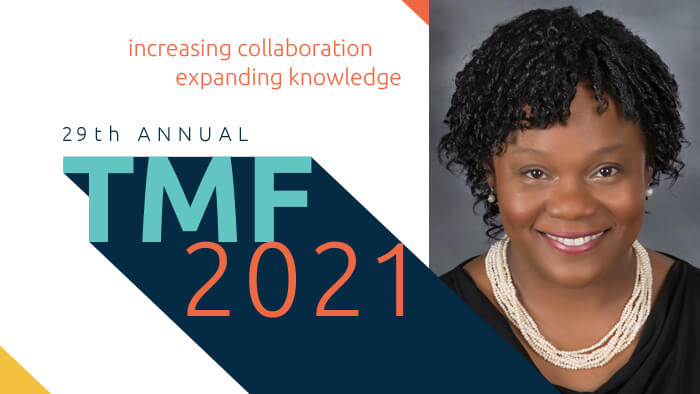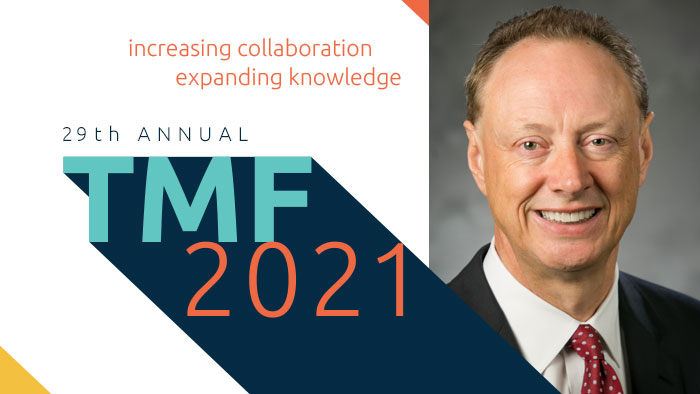If we can see the caste system in the U.S. affecting housing, educational outcomes and income disparities, our responsibility is to then look at the how the social determinants of health, the health care system and health disparities are also interrelated. Amy Hunter, CEO, Lotus Roots Consulting LLC, will speak about how health care activists and advocates must then work to undo, dismantle and interrupt patterns within our systems and our communities that lead to the disparities.
Tell me a little bit more about your background.
I previously worked at St. Louis Children’s Hospital. I now own my own consulting company where I consult organizations on various topics from healthcare to education, providing corporate strategy and planning around diversity and equity training for organizations. I’ve been doing this work for about 25 years and have done public speaking, including a TED Talk called Lucky Zip Codes.
Give me a little bit of an overview of what you’re going to be presenting at TMF.
The invitation to speak came from somebody that I previously worked with at St. Louis Children’s Hospital. The hospital system understands the need for an increase in donors from the African-American community. Part of the presentation will talk about what prevents the African-American community from fully participating in the transplant community and what the caste system looks like.
When I am talking about the caste system, I am referring to the system in India but applied with the United States lens and how that has adversely affected our healthcare systems. The way Black people are treated within the health care system has had an impact on trust, which we have certainly seen during COVID-19 and taking back the nations. It also influences trust about whether or not the community believes that lifesaving measures would be taken for them when they come to the hospital or if their lives would be taken in order to save someone else’s life. So there is a really large conversation that needs to occur about how Black people’s bodies are perceived in health care in addition to how trust can be restored because of the historical harms that have been done to Black people in America.
What are you hoping TMF attendees will learn if they attend your session?
I hope that those attending my session will look at their own policies and practices with a very critical eye and ask themselves some deep questions, like “why would an African-American choose my hospital institution?”, “why would they trust me?” and “what have I done to restore the trust?” It could be in a truth and reconciliation way, in the community in which they live and serve.
What if we treated Black people who came to our healthcare centers as if they were VIPs, like we do our wealthiest patients? Even in our explanations, for when tragedy does occur, we could be having better conversations about what we tried and what we are trying. This could help a family be more at peace with what’s been done. If I felt like you’ve done everything that you could do to save my loved one, that could make the decision to donate organs so much easier. We also need to help people understand the gift that they could give to another human being, maybe even someone who looks like them, could be the gift or the legacy that they leave behind.
We also need to have cultural conversations around what does legacy-leaving looks like. Think about answering questions like “can you go to heaven if you’re missing your heart?’” Until we can have those deeper conversations across racial lines, I think many of the donor issues that we’re having won’t be resolved. I would encourage all of the healthcare centers to look at how do you treat, and not from your own kind of vanity reporting lens, but what would other people say about you? What is your reputation within those communities? Are you perceived as a place that is fair and equitable for black people to go, or are people still afraid to come to your institution?
Is there anything else that you want to tell me about your presentation?
During my presentation, I’ll talk about more about a very helpful book about the caste system, Isabel Wilkerson’s book, Caste. Knowing that a lot of institutions are looking at texts for medical professionals to gather around and have greater clarity on how their own institution might be perpetuating racism. I like that book in particular for health care. I think it helps reframe the conversation helps medical professionals really understand that this is a system much bigger than just their own institution and that they are still playing a role in this big system.




